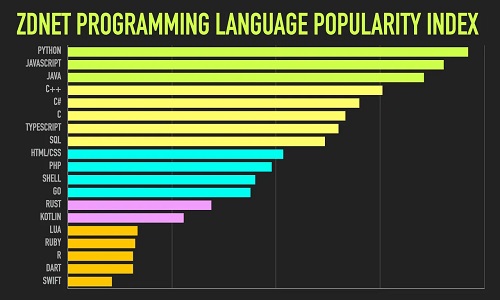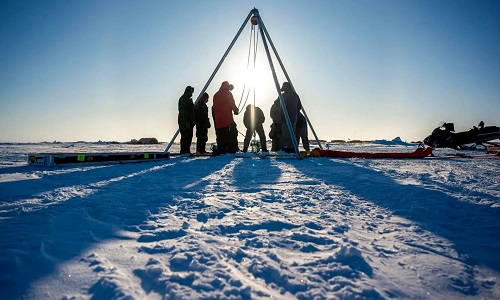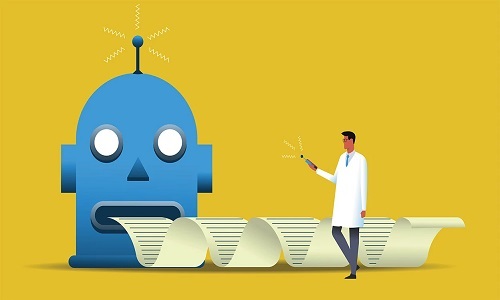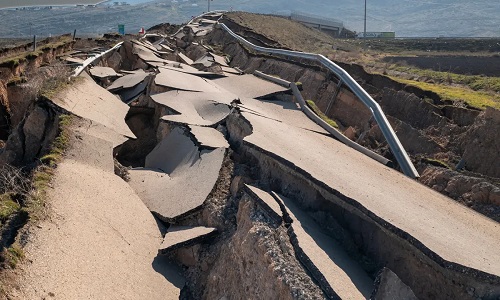
Welcome to the September 4, 2024 edition of ACM TechNews, providing timely information for computer professionals three times a week.
|
|
|
 A study by Code First Girls and Tech Talent Charter found that women are 40% more likely than men to be impacted by job automation. Code First Girls attributed this in part to men accounting for the majority of software engineers, raising concerns about biases being built into AI. Code First Girls said upskilling and reskilling can help keep women in particular from being displaced by AI and automation.
A study by Code First Girls and Tech Talent Charter found that women are 40% more likely than men to be impacted by job automation. Code First Girls attributed this in part to men accounting for the majority of software engineers, raising concerns about biases being built into AI. Code First Girls said upskilling and reskilling can help keep women in particular from being displaced by AI and automation.
[
» Read full article
]
Computer Weekly; Clare McDonald (August 29, 2024)
|
Dominion Energy Inc., the electric utility that serves "Datacenter Alley" in northern Virginia, said the wait time to connect new datacenters to the electric grid could be anywhere from four to seven years. That estimate applies to datacenters requiring more than 100 megawatts of electricity and amounts to an extra one to three years compared to previous estimates. Electrical demand from datacenters exceeds the available power supply in many areas of the world.
[
» Read full article
]
Bloomberg; Josh Saul; Will Wade (August 29, 2024)
|
 At the Robot Cafe in Nairobi, Kenya, three robots serve food to customers. Controlled by human waiters using an iPad app, the robots deliver food on trays and are programmed to utter simple responses like, "Your order is ready." Robot Cafe manager John Kariuki said the robots are not meant to replace human waiters, citing high acquisition costs and the robots' inability to handle all restaurant services.
At the Robot Cafe in Nairobi, Kenya, three robots serve food to customers. Controlled by human waiters using an iPad app, the robots deliver food on trays and are programmed to utter simple responses like, "Your order is ready." Robot Cafe manager John Kariuki said the robots are not meant to replace human waiters, citing high acquisition costs and the robots' inability to handle all restaurant services.
[
» Read full article
]
Associated Press; Desmond Tiro; Evelyne Musambi (September 1, 2024)
|
 Security researchers identified a flaw in a third-party Web-based service used by airlines to manage the Known Crewmember (KCM) program and the Cockpit Access Security System (CASS). They found the FlyCASS login system was vulnerable to SQL injection, which could allow hackers to log in as an administrator and manipulate employee data. The U.S. Department of Homeland Security said FlyCASS was disconnected from KCM/CASS in May; the vulnerability reportedly was fixed soon afterward.
Security researchers identified a flaw in a third-party Web-based service used by airlines to manage the Known Crewmember (KCM) program and the Cockpit Access Security System (CASS). They found the FlyCASS login system was vulnerable to SQL injection, which could allow hackers to log in as an administrator and manipulate employee data. The U.S. Department of Homeland Security said FlyCASS was disconnected from KCM/CASS in May; the vulnerability reportedly was fixed soon afterward.
[
» Read full article
]
BleepingComputer; Sergiu Gatlan (August 30, 2024)
|
 The ZDNET Index of Programming Language Popularity features five clusters, with Python, JavaScript, and Java at the top in the first cluster, followed by C++, C#, C, TypeScript, and SQL. The third cluster contains HTML/CSS, PHP, Shell, and Go, followed by Rust and Kotlin in the fourth cluster. The final cluster features Lua, Ruby, R, Dart, and Swift. The index aggregated survey data from nine different rankings.
The ZDNET Index of Programming Language Popularity features five clusters, with Python, JavaScript, and Java at the top in the first cluster, followed by C++, C#, C, TypeScript, and SQL. The third cluster contains HTML/CSS, PHP, Shell, and Go, followed by Rust and Kotlin in the fourth cluster. The final cluster features Lua, Ruby, R, Dart, and Swift. The index aggregated survey data from nine different rankings.
[
» Read full article
]
ZDNet; David Gerwitz (August 30, 2024)
|
 The Dutch government has banned the use of cellphones, smart watches, and tablets among students in primary and secondary schools. The ban went into effect for secondary schools in January and for primary schools on Sept. 2. The government said in a statement, "There is increasing evidence that cellphones in class are harmful. Students can concentrate less and their performance suffers. We need to protect students from that." The move follows similar bans in schools in Greece and Italy.
The Dutch government has banned the use of cellphones, smart watches, and tablets among students in primary and secondary schools. The ban went into effect for secondary schools in January and for primary schools on Sept. 2. The government said in a statement, "There is increasing evidence that cellphones in class are harmful. Students can concentrate less and their performance suffers. We need to protect students from that." The move follows similar bans in schools in Greece and Italy.
[
» Read full article
]
Deutsche Welle (Germany) (September 2, 2024)
|
 Researchers at NASA's Jet Propulsion Laboratory tested a prototype submersible vehicle that will help assess the rate at which warming ocean water is melting Antarctica's ice sheets and help improve computer models that predict future sea level rise. The prototype was deployed beneath the frozen Beaufort Sea north of Alaska in March, when it descended 330 feet (100 meters) to gather salinity, temperature, and flow data. The team aims to deploy a fleet of 10 autonomous robots.
Researchers at NASA's Jet Propulsion Laboratory tested a prototype submersible vehicle that will help assess the rate at which warming ocean water is melting Antarctica's ice sheets and help improve computer models that predict future sea level rise. The prototype was deployed beneath the frozen Beaufort Sea north of Alaska in March, when it descended 330 feet (100 meters) to gather salinity, temperature, and flow data. The team aims to deploy a fleet of 10 autonomous robots.
[
» Read full article
]
Fast Company; Steve Gorman (August 30, 2024)
|
 A team of researchers from the U.S., Canada, and Japan developed AI Scientist in an effort to automate parts of the scientific research process. Based on a large language model, AI Scientist can perform the complete research cycle, from reading existing literature and developing a hypothesis to testing solutions and writing a paper. It also can evaluate its own results, then build on those by restarting the research cycle.
A team of researchers from the U.S., Canada, and Japan developed AI Scientist in an effort to automate parts of the scientific research process. Based on a large language model, AI Scientist can perform the complete research cycle, from reading existing literature and developing a hypothesis to testing solutions and writing a paper. It also can evaluate its own results, then build on those by restarting the research cycle.
[
» Read full article
]
Nature; Davide Castelvecchi (August 30, 2024)
|
 Quantum holograms developed by researchers at the U.K.’s University of Exeter can be used to embed secure messages that are erased after sending. The researchers used a metasurface to create quantum holograms in which complex information can be encoded and recovered. Said Andrew Forbes of South Africa’s University of the Witwatersrand, “Everybody’s dream is to see all this quantum technology that spreads out over many square meters on a table to be compact enough to sit in your smartphone. Metasurfaces seem to be a good way to go [about that].”
Quantum holograms developed by researchers at the U.K.’s University of Exeter can be used to embed secure messages that are erased after sending. The researchers used a metasurface to create quantum holograms in which complex information can be encoded and recovered. Said Andrew Forbes of South Africa’s University of the Witwatersrand, “Everybody’s dream is to see all this quantum technology that spreads out over many square meters on a table to be compact enough to sit in your smartphone. Metasurfaces seem to be a good way to go [about that].”
[
» Read full article
*May Require Paid Registration
]
New Scientist; Karmela Padavic-Callaghan (August 30, 2024)
|
 A smart mask developed by California Institute of Technology researchers analyzes a wearer's breath biomarkers to detect diseases. The EBCare device in the mask condenses the wearer's breath, which is analyzed by a built-in sensor to determine alcohol, pH, ammonium, and nitrite levels that can identify kidney conditions, chronic obstructive pulmonary disease, and asthma. Data is transmitted to an app via Bluetooth.
A smart mask developed by California Institute of Technology researchers analyzes a wearer's breath biomarkers to detect diseases. The EBCare device in the mask condenses the wearer's breath, which is analyzed by a built-in sensor to determine alcohol, pH, ammonium, and nitrite levels that can identify kidney conditions, chronic obstructive pulmonary disease, and asthma. Data is transmitted to an app via Bluetooth.
[
» Read full article
]
The Guardian (U.K.); Nicola Davis (August 29, 2024)
|
 The U.S. National Institute of Standards and Technology (NIST) announced agreements that will give NIST's U.S. AI Safety Institute access to new AI models from OpenAI and Anthropic before and after their public release. The agreements will help bolster research on AI's capabilities and risks and allow NIST to recommend safety improvements. The U.S. National Institute of Standards and Technology (NIST) announced agreements that will give NIST's U.S. AI Safety Institute access to new AI models from OpenAI and Anthropic before and after their public release. The agreements will help bolster research on AI's capabilities and risks and allow NIST to recommend safety improvements.
[
» Read full article
]
The Hill; Miranda Nazzaro (August 29, 2024)
|
China is losing increasing numbers of tech professionals who have set their sights on Silicon Valley. Many are venture capitalists who grew wary of the tensions between the Chinese government and private companies. However, their ability to invest in AI, quantum computing, and semiconductors is hampered by both the Chinese and U.S. governments.
[
» Read full article
*May Require Paid Registration
]
The New York Times; Li Yuan (August 29, 2024)
|
 University of Alaska Fairbanks (UAF) researchers have developed a method of forecasting earthquakes accurately months before they occur using machine learning. The researchers developed an algorithm that searches seismic data for abnormal activity and makes informed predictions about impending earthquakes. By studying major earthquakes that occurred in Alaska in 2018 and California in 2019, the researchers found that major earthquakes are preceded by low-level tectonic unrest, which they attributed to a significant increase in pore fluid pressure within a fault.
University of Alaska Fairbanks (UAF) researchers have developed a method of forecasting earthquakes accurately months before they occur using machine learning. The researchers developed an algorithm that searches seismic data for abnormal activity and makes informed predictions about impending earthquakes. By studying major earthquakes that occurred in Alaska in 2018 and California in 2019, the researchers found that major earthquakes are preceded by low-level tectonic unrest, which they attributed to a significant increase in pore fluid pressure within a fault.
[
» Read full article
]
Interesting Engineering; Prabhat Ranjan Mishra (August 30, 2024)
|
|